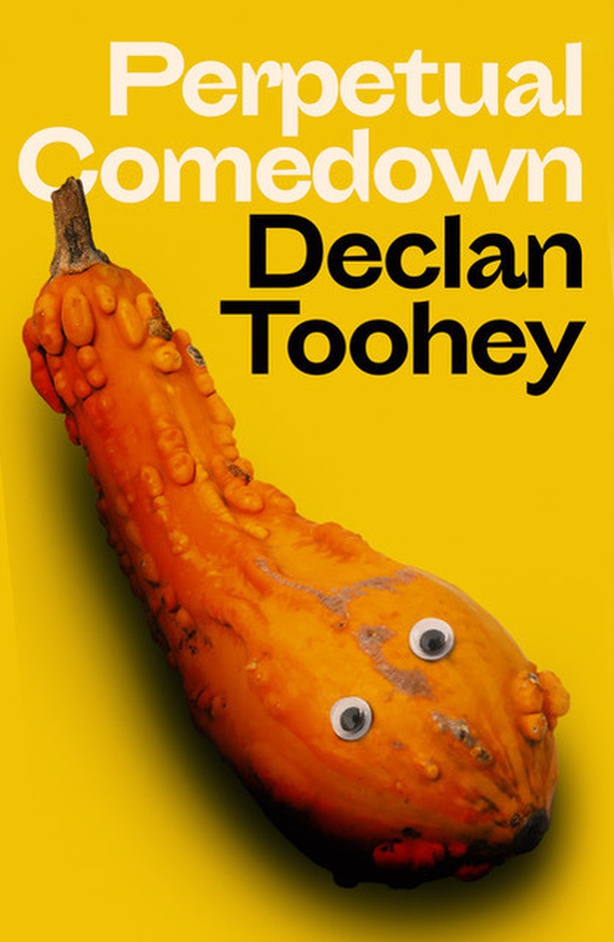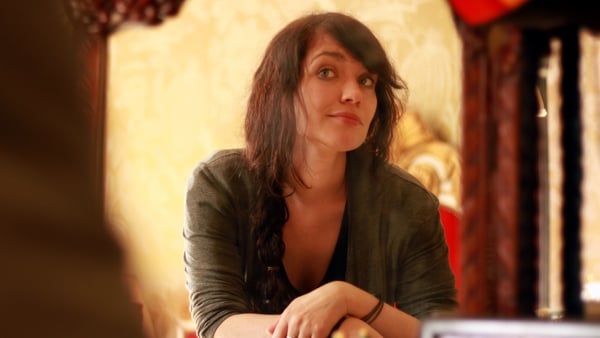We present an extract from Perpetual Comedown, the debut novel by Declan Toohey.
Student Darren Walton is trying to interpret an elaborate conspiracy he has unearthed - the existence of an alternate Ireland called Camland with its own history, literature and heroes. But does such a place really exist beyond Darren's restless mind?
In this extract, Darren makes further enquiries into Camland and its origins...
To iterate, I consulted Cian Scanlon not to seek out Camland but to ensure I wouldn’t graduate with a 2:1. Young though I was, I realised there were few jobs in the world for which I was adequately suited. I began to worry about this. My thinking was that if eventually I was to assume a life of permanent precarity, I wanted at least a first-class degree as my starry sky at which to stare from the gutter.
Thus I found myself obsessing about academia more generally. It was the only thing I cared about. I dreamed of tenure by the water. At NUI Galway or the University of Sussex. I was no longer the financial wreck I was a year-and-a-bit ago. But I craved a literary discovery that I wasn’t getting from the modernist novella or British literature of the 1930s. Sure, when I was slinging pints, I was thinking about Aschenbach, Dalloway, Gregor, Kurtz, Gatsby; and when I listened to lectures, I was transcribing words in my head, absorbing the wisdom of faculty in order to utilise it for exam purposes. But on the occasions I rang home, I zoned out at my mother’s mention of Viennese fingers or her current state of being and I thought of what I’d write for my doctorate, my post-doc, my future articles, my monographs.
Then around mid-March it clicked.
I realised there was little new to say in the overcrowded world of academia. It was not so much a cut-throat business as an adult- sized playground in which the rules were 'Finders keepers’ and ‘My da’s bigger than yours’; in which the father, of course, was an outlandish reading of a literary work. Critics fought over the first word, then over who said it better. And what was Camland, I wondered, if not a subject about which I was guaranteed the first word? What was it if not, all going well, an academic goldmine? Or gourdmine, if you please.
Further thoughts came immediately. The first PhD candidate in Camish Studies. Doctoral funding, sponsored post-docs, tenure, a stable life. An eminent career. What Richard Ellmann was to James Joyce, or Judith Butler to Gender Studies, Darren Walton would be to all things Camish.
So one afternoon I shot Cian Scanlon an email.
‘Dear Cian,’ it went. ‘I do not believe I have reached out to you yet since I availed of your staff’s exceptional services. I am more confident with my writing than ever before, and for that I have you to thank. Know that it is very much appreciated. In addition, I am thinking about researching the topic of Camland. Professor Longford of the English department first ran it past me a few months ago and said that you may know a thing or two about it. If this is something with which you would be interested in assisting me, do let me know. Best, Darren.’ As the above makes clear, in the space of six writing consultations I had become outrageously dull, muddled by cliché, hackneyed by exposition. All in a quest for clarity and precision.
My idealism had reached a point where the basis for my career was now an obscure topic about which I knew nothing and whose peculiar existence was too new to have any discernible relation to truth. After all, in the academy, the more veracious the argument, the older the essay. But that was precisely what fascinated me about Camland. It was, as I imagined – before I knew a single thing about it – novelty masked as truth. Which is exactly what the academy were after.
Those precious stones that lie at the heart of an exquisite poem? They’ve been on sale for centuries, have done the rounds to such a promiscuous extent that they’re practically worthless. No faculty wants them. They hate your diamonds, spurn your emeralds, loathe your topazes, spit on your opals, piss on your rubies, laugh in the face of your turquoises and sapphires. They want dirt disguised as hydrophanes, mulch passed off as aquamarine. Or if you can pull the feat off, water in the form of cymophanes or chrysoberyls.
(Apologies for including such obscure jewels. Years ago I was haunted by Maebh’s brooch to such an extent that I tried to find it online, and though I failed to do so, I fell down a jewel-themed rabbit hole during which I committed the above gems to memory.)
Standing, then, before what I thought was a genuine break with the past, before the future of Ireland, I imagined I had found the perfect way to conflate novelty and truth. All without burning out. From my essays it was clear that I had nothing to say and I insisted on saying it. That I was less an advocate of noble silence than a practitioner of dishonourable clamour. That I relished the noise where meaning and nothingness rhymed. But with Scanlon’s project I suspected I might have a lifeline. A means by which to say nothing and, in doing so, attain a career.
If, that is, my hunch was correct.
Scanlon replied the following day. The email’s timestamp was 03:32 of that morning.
I would remember this timestamp years later, when the email thread disappeared. How wouldn’t I? The man was replying to me in the early hours of a Tuesday morning. I’ve no doubt they were real, these emails, but where did they go? Do they live on a server in some north Dublin suburb? Did a Microsoft employee permanently erase them from Outlook? Did Scanlon or Simone have a role to play in their disappearance? Was my computer bugged, even at this early stage?
I don’t know. But what Scanlon said was this.
‘Hi Darren, Many thanks for the kind words. I’m delighted you benefitted from our services. As for Camland, your interest is thrilling. Given the complexity of the topic, however, it might be best if we have a wee chat in person. My office hours are 11:00–13:00 on Tuesdays and 15:00–17:00 on Wednesdays. But if these don’t suit, we can schedule a time that works for us both. Yours, Cian.’

Perpetual Comedown is published by New Island

